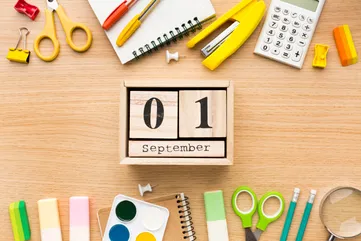Life Coach
A life coach provides non-therapeutic support to help teens clarify goals, develop action plans, and build skills for navigating academic, social, and personal challenges.
You're not alone
If your teen shuts down when you offer advice but needs guidance, or you're exhausted from being their only support, coaching can help. Many successful families use coaches to preserve relationships while ensuring teens get needed support. It's not failure; it's strategic parenting.
What it looks like day to day
Parent
You step back from constant reminding and checking, watching your teen develop accountability to someone else while your relationship improves.
Tiny steps to try
Prepare for potential coaching support.
- 1
Normalize support
Frame coaching as tool for success, not fix for problems. Athletes have coaches too.
- 2
Identify needs
List specific areas where neutral support would help (organization, goals, motivation).
- 3
Teen involvement
Let teen participate in choosing a coach. Buy-in improves outcomes.
- 4
Clear boundaries
Coaches aren't therapists or tutors. Understand the specific role and limitations.
- 5
Trial period
Start with short commitment to test fit. Not every coach-teen match works.
Why teens benefit from coaching
Parents provide love but sometimes teens need neutral support to explore identity and tackle challenges.
Coaching benefits:
• Neutral adult perspective without family dynamics
• Skill-building for organization and planning
• Accountability without parental nagging
• Safe space to explore goals and values
• Strategies for specific challenges
• Building independence and confidence
Life coaches complement parenting by providing structured support teens are more likely to accept from non-parents.
Ready to help your teen thrive?
Get personalized 1-on-1 coaching to build better habits and boost grades. Join 10,000+ families who trust Coachbit.
Frequently Asked Questions
How is a life coach different from a therapist?
Therapists address mental health conditions, trauma, and emotional healing, often looking at past experiences. Life coaches focus on present challenges and future goals, building skills and strategies. Coaches work with functional teens facing normal developmental challenges, not clinical issues.
When should we consider a life coach?
Consider coaching when normal parenting feels insufficient but therapy seems unnecessary. Common timing includes transitions (starting high school), persistent challenges (organization, motivation), or when parent-teen dynamics interfere with support. If mental health concerns exist, address those first or simultaneously with therapy.
Related Terms
Academic Coaching
Academic coaching is personalized support that helps students develop learning strategies, time management skills, and study habits for academic success.
Accountability Partner
An accountability partner is someone who provides regular check-ins, encouragement, and gentle pressure to help maintain commitment to goals and habits.
Goal Setting
Goal setting is the process of identifying specific, achievable objectives and creating actionable plans to reach them within defined timeframes.
Self-Advocacy
Self-advocacy is the ability to understand your needs, communicate them clearly to others, and take action to get appropriate support or accommodations.
Teen Life Coach
A teen life coach specializes in supporting adolescents through developmental challenges, helping them build skills, confidence, and clarity during crucial growth years.
Related Articles

3 Ways an Executive Functioning Coach Can Help Your Child
Discover why executive functioning skills are crucial for your child's success. Learn how an executive functioning coach can make a difference
Read article
Finding Order in the Chaos – Setting up Calendars for Kids
Creating a calendar and daily schedule for kids can be beneficial to manage school, homework, extracurriculars and hobbies. Color-coding and time-blocking are helpful tools for kids with ADHD.
Read article
